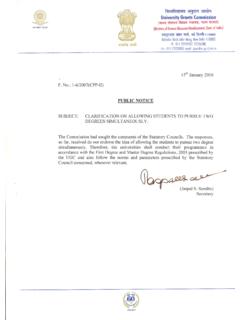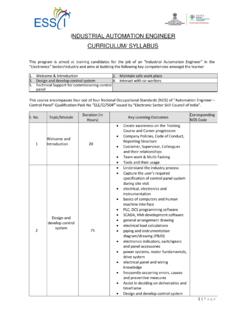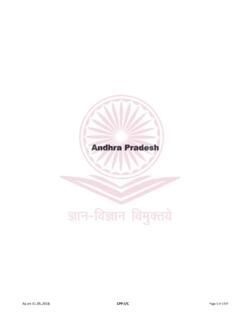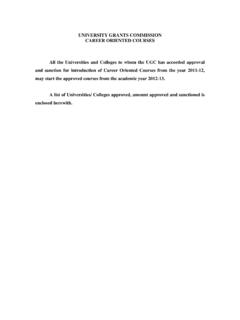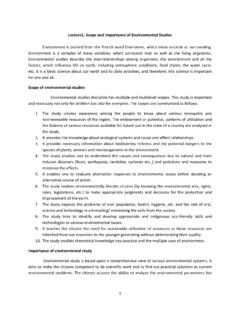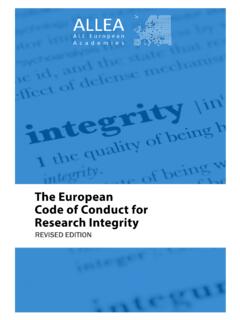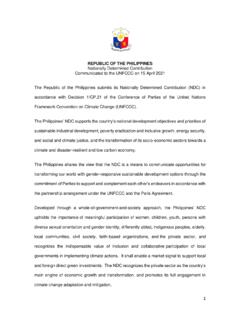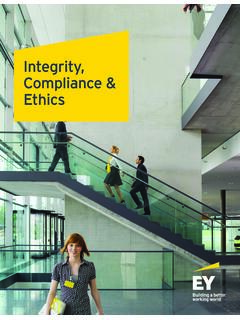Transcription of Academic Integrity and Research Quality
1 Academic Integrity and Research QualityGovernment of IndiaMinistry of EducationDepartment of Higher EducationUniversity Grants CommissionMinistry of EducationNew DelhiGovernment of IndiaMinistry of EducationDepartment of Higher EducationUniversity Grants CommissionMinistry of EducationNew DelhiDesigned by Professor Him Chatterjee, Department of Visual Arts, Himachal Pradesh University, Shimla The UGC PortraitThis emblematic portrait of the University Grant Commission captures an essence of the education philosophy from our traditional knowledge Orange colour scheme represents Knowledge. The Swan represents Goddess Saraswati spreading her wings of Knowledge. The merged icons from the national emblems, the lion and the Dharma Chakra signifying forward and onward movement and Buddhi in the form of the open books below is the emblem of UGC. The owl eyes stand for the Goddess Laxmi and Ghara representing wealth in the form of Grant.
2 The space between the Gyan Chakra and Sahasara Chakra signals transcendental knowledge and , the image in totality communicates the balance of thoughts from an array of disciplines acquired through the logical-analytical processes by the brain s left hemisphere brain and the creative and artistic disciplines acquired through the brain s right hemisphere. The zodiac signs in the foreground own world, while the question marks inscribed on the eyes signify curiosity and inquiry which are integral to education, teaching and Grants CommissionBahadur Shah Zafar MargNew Delhi 110002 Academic Integrity AND Research Quality University Grants CommissionDecember, 2021 Printed and Published by : Secretary, University Grants Commission, Bahadur Shah Zafar Marg, New Delhi- 110002 Designed and Printed by : Deeya Media Art D-41/A, Opp. Metro Pillar No. 33, Vikas Marg, Laxmi Nagar, Delhi-110092 Ph.
3 : +91 9312550335, +91 7042732332 E-mail : Integrity AND Research Quality | iiiTABLE OF CONTENTSF oreword: Singh, Chairman, University Grants CommissionvAcknowledgements: Prof. Rajnish Jain, Secretary, University Grants 1: Academic Integrity and Research Quality Bhushan Patwardhan and Archana 2: Philosophy and Ethics of Research in Science Subhash C. 3: Ethics in Research Publications: Fabrication, Falsification, and Plagiarism in Science Praveen Chaddah 4: Research Ethics in Social Science Padma 5: Research in Languages in the Light of Research Ethics Uma 6: Research Methodology and Fallacy in Humanities and Social Sciences Research Kiran 7: Ethics in Biomedical Sciences Sanjay A. 8: Roles, Responsibilities, and Ethics of Research Supervisors Parimal H. Vyas 9: Strengthening Research Integrity in Higher Education Institutes Debendra C.
4 10: Academic Dishonesty and Scientific Misconduct 11: Sooner or Later Ethical Violations Get Exposed Ramesh Ch. Deka and Ajanta 12: Promoting Ethics through UGC-CARE and NEP 2020 Vinod K. Jain and Gaurangi 13: Databases and Research Metrics Manmohan 14: The Impact Factor of Journal Pulok K. 15: Predatory Journals: Causes and Consequences Shubhada Nagarkar 16: Mentoring for Enrichment of Core Academic Values Shridhar R. of UGC-CARE Archana on Publication Ethics (COPE): Guidelines on Good Publication Practices Archana 168iv | University Grants CommissionACADEMIC Integrity AND Research Quality | vFOREWORDU niversity Grants Commission (UGC), in its constant endeavour to ensure Quality and excellence in higher education, has taken the initiative of Quality Mandate to continuously improve the Quality in Higher Education Institutions (HEIs) in India.
5 Moving ahead in this direction, the Quality Mandate of UGC, which emphasizes the importance of promoting high- Quality Research and creating new knowledge by faculty members, established a Consortium for Academic Research and Ethics (CARE) with the main task of improving the Quality of Research in Indian universities and to promote Academic and Research Integrity as well as publication ethics. Focusing on both process and product, UGC, in its initiative, has come up with an invaluable book on Academic Integrity and Research Quality . I am proud to present this book, a work of dedication and commitment, which will be a torchbearer for the researchers and stakeholders of results must appear in the best places, bringing laurels and rewards to the researcher, the institution, and the country. This book does not merely focus on a regulatory set of rules but highlights norms and best practices that all of us involved in tertiary education, must adopt.
6 It is a valuable collection of writings from serious practitioners, administrators, and observers of the Research ecosystem in Indian HEIs. The 16 well-researched and written articles cover the basic parameters of ethics, publishing codes, and principles of Research across diverse disciplines. I have no doubt, that as a community of researchers, if we can implement and practice the ethics, principles, ideas, and ideals that appear in this volume, it will change the way we practice and publicize our Research work. This volume is one of the remarkable initiatives of the UGC and I take personal and professional pride that India s highest regulatory authority has brought out this practice of good Research produces good results. How we undertake Research , find out the best places to publish, how best we can present our work these are concerns that all of us share.
7 We need to strengthen Research methodologies, reject dubious methods, and identify the best modes of generating Quality . I thank all the esteemed contributors to this book for their valuable cooperation and contribution. I also take this opportunity to acknowledge the significant contribution and sincere efforts made by Prof. Bhushan Patwardhan, former Vice-Chairman, UGC, Prof. Rajnish Jain, Secretary, UGC, and Dr. Archana Thakur, Joint Secretary, UGC to successfully publish this book during the COVID-19 pandemic best wishes to all SinghChairman,University Grants CommissionNew DelhiDecember, 2021vi | University Grants CommissionACADEMIC Integrity AND Research Quality | viiAcknowledgementsUniversity Grants Commission, in its incessant strives aimed at improving the Quality in Indian Higher Education Institutions to compete with the Global scenario, has adopted Quality Mandate.
8 One of the initiatives of the mandate highlighted to be undertaken by the Higher Education Institutions for fulfilling its objectives is promoting high Quality Research and creation of new knowledge by faculty members. Establishment of a Consortium for Academic Research and Ethics (CARE) by UGC is a step forward to enhance Research capacity and to nurture Research culture in the Indian Universities and Colleges. This book Academic Integrity and Research Quality , which is meant for the community of researchers, construes the principal tenets of CARE to improve the Quality of Research Integrity as well as publication ethics across its 16 chapters on different titles contributed by renowned authors and experts. I acknowledge their valuable contributions and sincerely thank them. I am sure that this book will be received with great clat in the Research community.
9 I am grateful to Prof. Singh, Chairman, UGC under whose visionary leadership this initiative was taken and this book with well researched titles has come up. I am also thankful to Prof. Bhushan Patwardhan, Former Vice Chairman, UGC for his valuable contributions and guidance in publishing this book. I am thankful to Dr. Archana Thakur, Joint Secretary for her significant contribution and sincere efforts in bringing up this book. I earnestly thank Ms. Indu Ramchandani for taking up the task of editing the book and completing it in record time. I am thankful to Shri Thakur, Financial Advisor, UGC for his continued support. I appreciate and thank Dr. N. Gopukumar, Joint Secretary, UGC; Dr. Diksha Rajput, Deputy Secretary, UGC and the dedicated team of Publication Section of UGC for their sincere efforts in bringing out this Rajnish JainSecretaryUniversity Grants CommissionNew DelhiDecember, 2021viii | University Grants CommissionACADEMIC Integrity AND Research Quality | 1 CHAPTER 1 Academic Integrity and Research QualityBhushan Patwardhan and Archana ThakurVery rigorous, scientific, and responsible efforts through Research and innovation are needed in the quest for truth, and for creating or presenting new and authentic scientific information, to contribute to socio-economic benefits for the global community.
10 It is important to ethically improve Quality and simultaneously prevent any Academic misconduct, including plagiarism. Serious concerns have been raised over many years now, especially with the increasing trend for publishing Research papers in international journals, regarding fake information following the debacle of the Fabrication, Falsification and Plagiarism crisis. Faculty members, scientists, and other stakeholders need to take a firm stand against any such trends. It has also been stressed that they must contradict those who promote it (Hopf, et al., 2019). The increasing occurrence of compromised publication ethics and deteriorating Academic Integrity is a global problem and it is a blot on all areas of Research . India is no exception and to get to the root of the matter, we must appreciate the complex and diverse higher education system in India.
